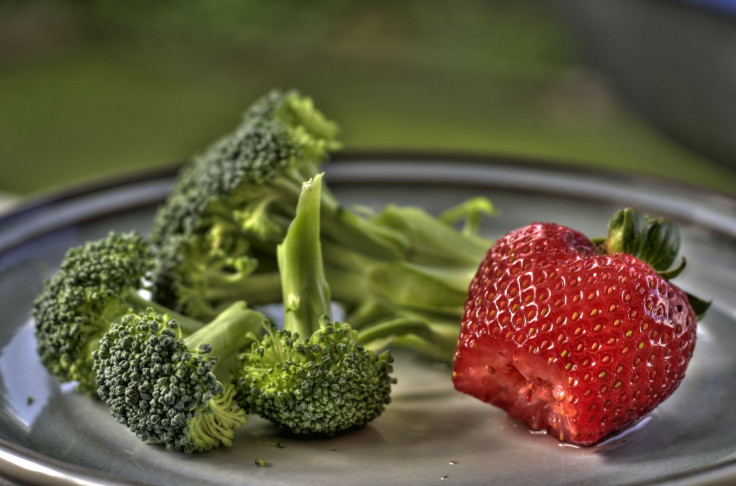Eat Fruits And Vegetables In Your 20s To Avoid Heart Disease Up To 20 Years Later

Young vegans may be onto something. It turns out, eating fruits and veggies early on in life can lead to massive heart benefits later in life. The American Heart Association has released new findings published in the journal Circulation, which demonstrate the power of a healthy diet as a young adult.
"People shouldn't assume that they can wait until they're older to eat healthy — what you eat as a young adult may be as important as what you eat as an older adult, " said the study’s lead author Dr. Michael D. Miedema, senior consulting cardiologist and clinical investigator at the Minneapolis Heart Institute, Minneapolis, Minn.
For the study, researchers looked at how 2,506 young men and women ate a 2,000-calorie diet on a daily basis over the course of 20 years, starting from when they were young adults. After recording their diets, they divvied them up into three different groups — the women in the first group ate an average of nearly nine servings of fruits and veggies a day, while men ate an average of more than seven servings. The women in the group that consumed the least amount of fruits and veggies ate an average of 3.3 servings a day, while men ate an average of 2.6 servings. The second group fell in the middle as an average fruit and veggie consumer.
At the end of the study, each participant underwent a CT scan to check for how much plaque built up on the walls of the arteries in their heart. Those who ate the most fruits and veggies at the beginning of the study in 1985 were 26 percent less likely to develop plaque in their arteries 20 years later, compared to the third group, who ate the least amount of fruits and veggies.
Plaque is made up of cholesterol, fatty substances, cell waste, calcium, and a clotting material in the blood known as fibrin. When calcium builds up inside the heart, it increases a person’s risk of heart disease and heart attack because there’s less room for blood to flow to and from the heart. According to the American Heart Association, this condition, known as atherosclerosis, is often a progressive hardening of the arteries that doesn’t typically become a danger until a person reaches their 50s and 60s.
In the past, there have been studies that show the link between eating fruits and veggies and a reduced risk of heart disease in middle-aged adults, but this is the first time a study looked at how fruits and veggies can improve heart health and blood vessels later in life.
"Our findings support public health initiatives aimed at increasing fruit and vegetable intake as part of a healthy dietary pattern," Miedema said. "Further research is needed to determine what other foods impact cardiovascular health in young adults."
Source: Miedema MD, Petrone A, Shikany JM, et al. The Association of Fruit and Vegetable Consumption During Early Adulthood With the Prevalence of Coronary Artery Calcium After 20 Years of Follow-up: The CARDIA Study. Circulation. 2015.



























